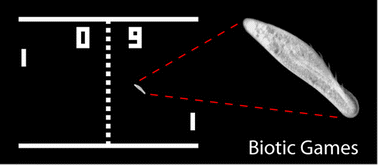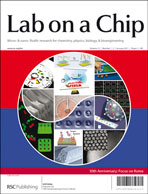Abstract
Games are a significant and defining part of human culture, and their utility beyond pure entertainment has been demonstrated with so-called ‘serious games’. Biotechnology – despite its recent advancements – has had no impact on gaming yet. Here we propose the concept of ‘biotic games’, i.e., games that operate on biological processes. Utilizing a variety of biological processes we designed and tested a collection of games: ‘Enlightenment’, ‘Ciliaball’, ‘PAC-mecium’, ‘Microbash’, ‘Biotic Pinball’, ‘POND PONG’, ‘PolymerRace’, and ‘The Prisoner's Smellemma’. We found that biotic games exhibit unique features compared to existing game modalities, such as utilizing biological noise, providing a real-life experience rather than virtual reality, and integrating the chemical senses into play. Analogous to video games, biotic games could have significant conceptual and cost-reducing effects on biotechnology and eventually healthcare; enable volunteers to participate in crowd-sourcing to support medical research; and educate society at large to support personal medical decisions and the public discourse on bio-related issues.


 Please wait while we load your content...
Please wait while we load your content...